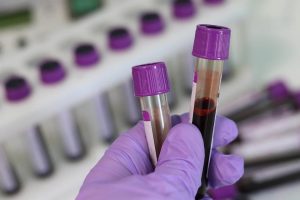One of two scenarios may occur when you walk into the doctor’s office feeling a bit unlike yourself.
The doctor may be able to detect your problem right off the bat. In this case, they will create a treatment plan that will get you feeling better in, say, a couple of days. Such is usually the case with migraines, muscle strains, common cold, sinuses, or heartburn.
But, in some cases, the doctor may find it difficult to connect your symptoms to one problem. It happens with symptoms such as fatigue, headache, feverishness, or insomnia, common signs in several ailments.
Unfortunately, these cases occur more often than you would think. So, even though you feel sick, your doctor cannot diagnose you with absolute surety. So, you’re either misdiagnosed or sent home with a couple of pain relievers or sedatives. Many people don’t know a solution to these ‘hidden’ diseases that can get you back to optimal health.
Here’s where functional medicine comes in.
What Is Functional Medicine?
Functional medicine is a practice within medicine that utilizes special tools, training, and methods to identify complex, multi-faceted conditions and ailments. The process may involve evaluating the different issues bringing about a disease or several conditions causing a single symptom.

Functional medicine doctors usually employ a holistic approach, examining a person’s physical, emotional, psychological, and even spiritual health. They also look at everything that makes up a person’s life, including diet, hormones, prescription meds, genes, OTC, and so on.
Functional medicine doctors go through medical school like other doctors before specializing in the field, later on, sometimes combining it with integrative medicine.
When you visit a functional medicine doctor, they’ll first look at you and ask you questions about your symptoms, medical history, diet, stressors, level of physical activity, sleeping patterns, emotional wellness, and anything else they deem important in your case.
Next, they will recommend some functional medicine tests depending on the information they gather from you.
The Most Common Functional Medicine Tests & What They Do
The human body is relatively intricate, with a myriad of complex processes. Naturally, the ailments that may plague your body are also diverse and complicated. However, functional medicine has made it possible to diagnose difficult conditions to pinpoint in the past.
The most common function medicine tests you can find include:
Comprehensive Functional Blood Work
Comprehensive blood work analyzes various factors from your blood that could be causing your illness. These things include your blood sugar imbalances, electrolyte balance, vitamins, hormone imbalances, and how your blood interacts with vital organs such as your kidneys and liver.

With this test, your functional medicine doctor can tell if or not you have conditions such as type 2 diabetes, metabolic issues, organ functions (thyroid, liver, and kidney), neuropathy, inflammation, and even deficiencies in essential vitamins and minerals levels.
This test is usually general, and if the doctor finds something from the results, they may ask for additional tests like a thyroid test or a micronutrient deficiency test.
Micronutrient Deficiency Testing
Micronutrient testing looks at the functional levels and deficiencies of important vitamins, minerals, fatty acids, amino acids, and antioxidants.

In some cases, nutritional deficiencies may be the underlying cause of your poor health. Lacking nutrients like folate, Vitamin B12, and iron have been linked to severe health problems such as anemia, chronic fatigue, dizziness, headache, muscle weakness, and so on.
The results from micronutrient deficiency training can help the functional medicine doctor pinpoint areas where you have deficiencies in your body or maybe over-supplementing and help you return to optimal health.
Food Sensitivity Testing
Lab testing for food sensitivity involves evaluating how your immune system reacts to different foods and substances in food.
We sometimes eat food that doesn’t react well with our bodies without knowing it.

The reaction is often in the form of gas, bloating, cramps, heartburn, nausea, diarrhea, and even vomiting. Food sensitivity, while common, is quite hard to detect, even for doctors. A food sensitivity test can help you find and consequently avoid foods that your body is intolerant to and even help you control the autoimmune disease.
Depending on the functional medicine practice you visit, you can get a food sensitivity test against hundreds of common foods and create a sustainable plan guided by nutritional medicine.
Genetic Testing
Genetic or DNA testing is yet another functional medicine test that has become incredibly popular in the past few years.
Genetic tests not only help determine your ancestry but also your predisposition to specific gene-related health issues. This test can help identify changes in genes, chromosomes, or proteins.

It’s usually used to confirm or rule out a suspected genetic condition or help assess your likelihood of developing or passing on a genetic disorder.
Genetic testing can help detect numerous celiac diseases, breast cancer, bipolar disorder, psoriasis, Parkinson’s disease, and obesity.
Comprehensive Stool Analysis
Stool testing is usually administered to determine your gut health and consequently diagnose gut issues such as IBS, autoimmune disease, ulcers, or diabetes causing bloating, stomach ache, or indigestion.

The gut and stomach together make one of the most important systems in the human body. Since the gut absorbs nutrients from the food we eat, it virtually supports every other organ in the body.
If the GI tract stops working properly or is experiences some imbalance, a host of health issues may ensue.
Hormone Panel
A hormone panel is usually done on the saliva and blood, is used to check hormone levels and if anything is out of the ordinary.
Hormones are super important to our bodies and are responsible for triggering processes like sexual desire, hunger, blood pressure, sleep, and even metabolism.
Low or unbalanced hormonal levels can bring about infertility, low sexual drive, hair loss, weight gain (including difficulty losing weight), erratic mood swings, or acne.
Tired of Suffering Endlessly With No Solution to Your Ailment? We Can Help You Get Your Health- And Life- Back
Functional medicine is more elaborate and tries to seek answers to problems that conventional medicine cannot answer.
If you’ve been suffering from anything at all and are looking for permanent relief, don’t hesitate to reach out to Dr. Cheryl Winter in Conroe, Texas.
We will do the right lab tests according to your symptoms to figure out what condition you might be suffering from and develop a holistic treatment plan just for you.
Give our functional medicine practice a call at 832-327-9332 to book a free 15-minute consultation today!








